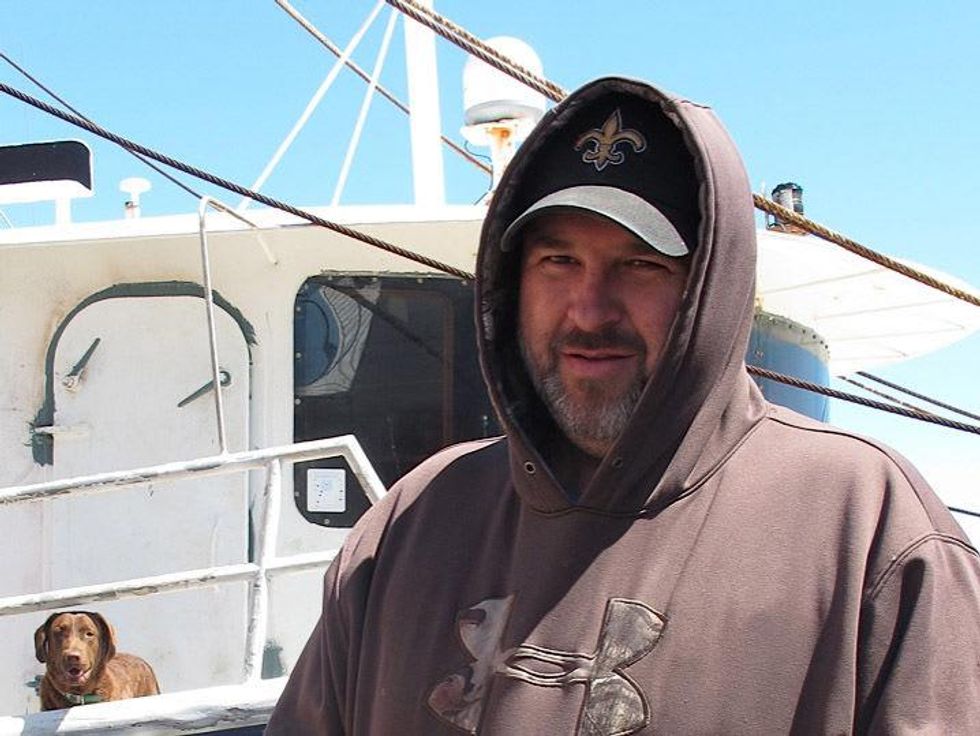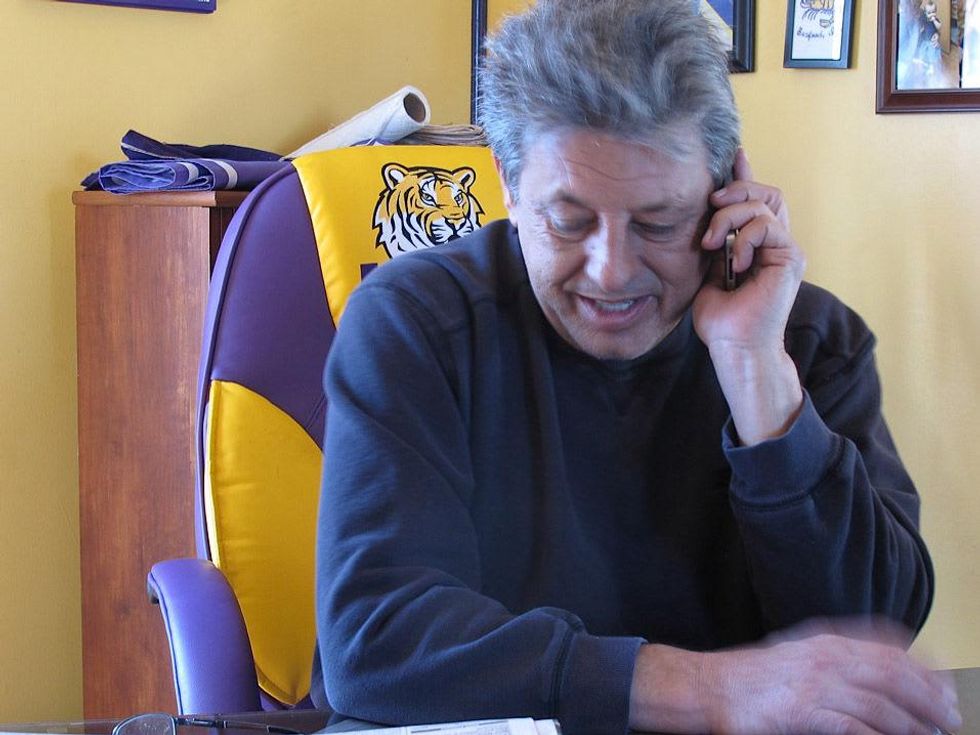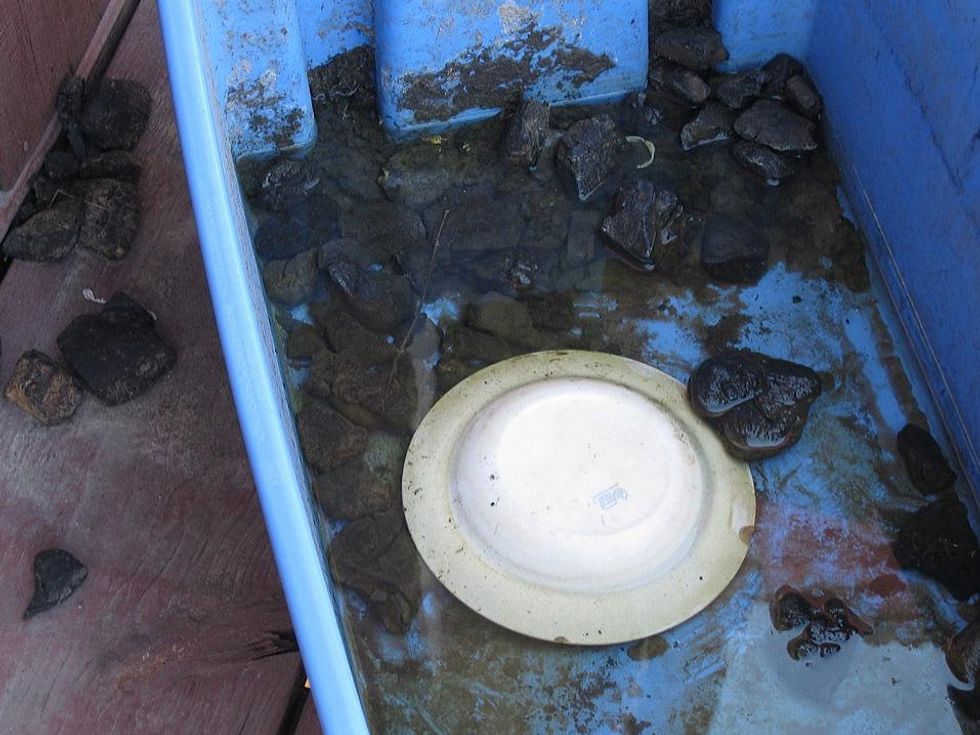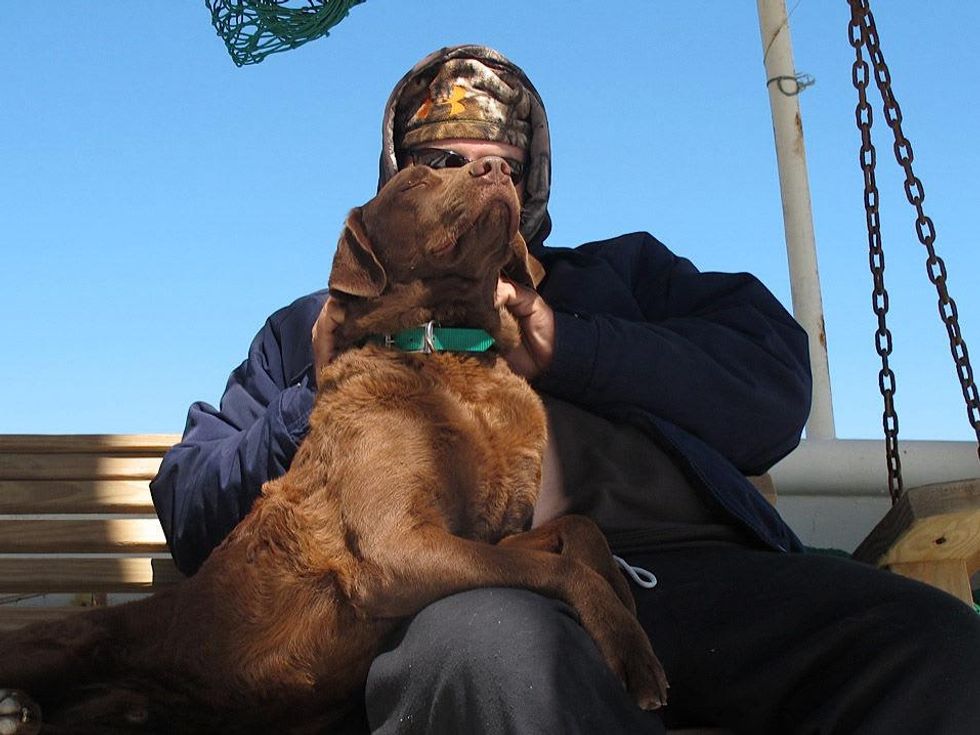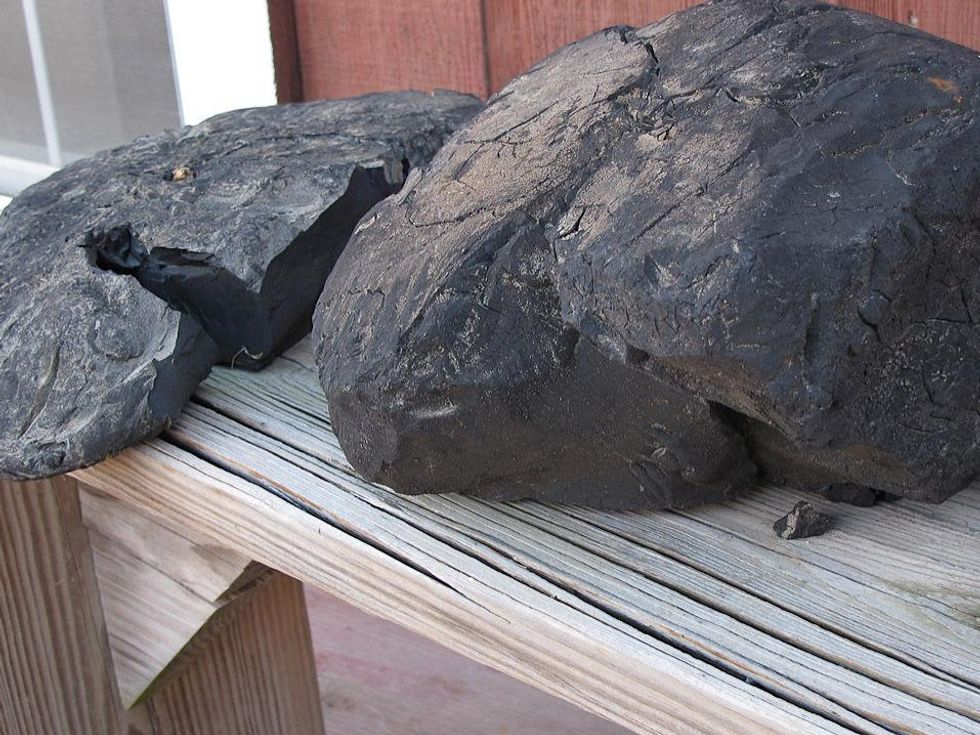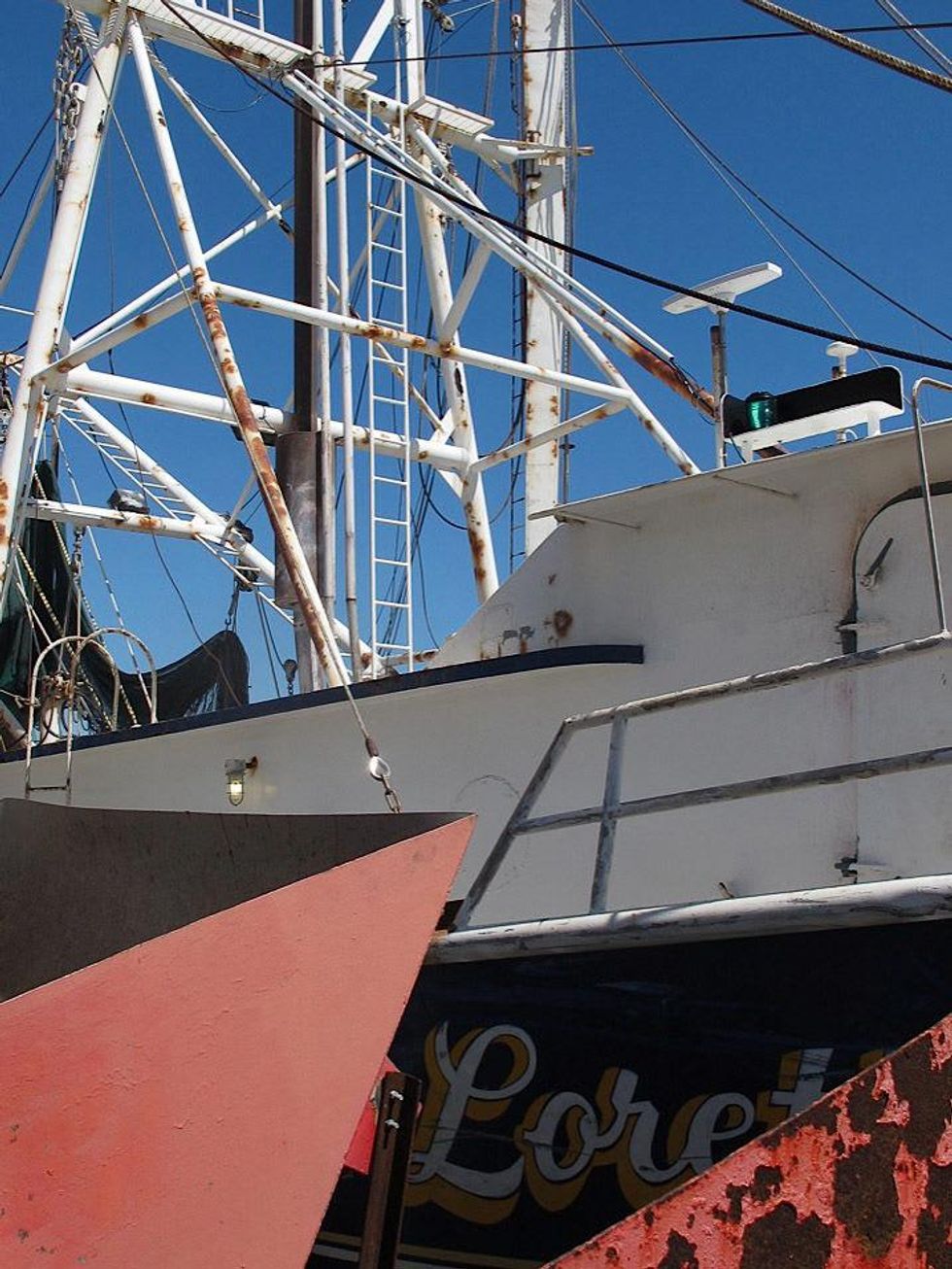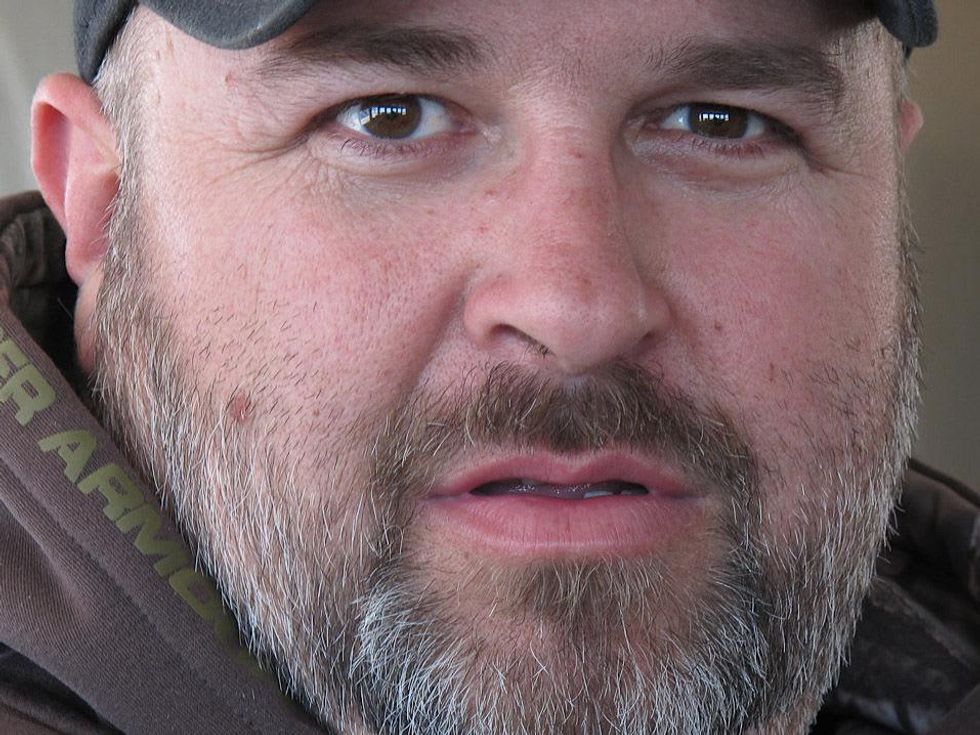Tattered Jeans
Louisiana Revisited: Anger and sadness on Grand Isle as BP oil spill worries continue
May 13, 2013 | 9:14 am
Editor's Note: In 2010, Katie Oxford filed a series of riveting columns from the heart of the Gulf oil spill disaster. She recently returned to Louisiana. This is her fifth column in a series.
On February 5th, I watched a documentary on the Science Channel that was really disturbing. I grabbed a pencil and made notes. The name of the piece was "Seas of Death" — or so I thought but apparently, I didn’t catch the title correctly as for the life of me, I cannot find it anywhere.
In the documentary, according to scientists, the oxygen supply to the deep ocean had declined by 22 percent. It claimed that due to high temperatures, low oxygen and increased acidity, the ocean is not only suffocating, it’s undergoing a change in biology.
Like a pelican cooling its wings, the camera moved across the ocean providing beautiful vistas of big blue. But, the narrator warned, “In the Gulf of Mexico, all is not as it appears to be.”
Now, after the Gulf oil spill plus BP’s use of poison (Corexit 9527 and Corexit 9500) to disperse the oil, was there such a thing as deader than dead?
“Up ahead,” he continued, “blue fades to black,” to one of the world’s largest dead zones. “Here,” he said, “there are no birds, no sharks, no fish, no life at all.”
I wondered about this. Now, after the Gulf oil spill plus BP’s use of poison (Corexit 9527 and Corexit 9500) to disperse the oil, was there such a thing as deader than dead?
The documentary included numerous interviews, one of which was with a fisherman from Grand Isle, Louisiana — Dean Blanchard of Dean Blanchard Seafood, Inc.
Thanks to a friend in Breaux Bridge, I later made contact with Dean, who agreed to see me when I returned to Louisiana.
Now, on a March morning, I was driving to Grand Isle for our meeting.
Close to God
Three years ago I’d traveled to the island by boat. This time, driving by car from Galliano, it meant that I had to travel over that damn bridge to Port Fourchon. I’m no wimp but I’d almost rather have a pap smear. From one end to the other, I’d say the bridge goes a distance of one mile. Maybe more. Once at the top, you feel pretty close to God.
As I started up the concrete monster, to sooth my anxiety, I belted out a song, “Oh What a Beautiful Morning…” When I reached the top, to my amazement, I discovered that indeed it was a beautiful day! But, like the documentary said, not all was as it appeared.
When I entered Dean’s office, he received a phone call. Adjoining his office was a porch, so I quietly slipped out on it. There, in various sizes and shapes, I saw globs of oil. The smaller ones sat in a blue tub of water, looking alive. The larger pieces, dried, sat on a bench like people. Dead.
Whether you agree with what he says or not, Dean speaks the truth as he knows it and in my book, he knows some.
Later, I learned that all of these were collected over the last two years, some as recently as Thanksgiving of 2012. I took photographs and felt my anger grow, then, sadness.
I stepped back inside Dean’s office feeling greater empathy than before. After all, here was a man living at ground zero. Still.
Dean Blanchard is as direct as they come so if you need bedside manner, don’t come here. Whether you agree with what he says or not, Dean speaks the truth as he knows it and in my book, he knows some.
When I asked him about the oil on his porch, Dean looked at me as if to say, that ain’t nothin.’ Just the day before, Dean reported, contractors for BP had collected 5,000 pounds of oil at Grand Terre Island.
Over the last year, Dean said that some 200 to 300 residents had left Grand Isle. “They’re too sick to stay,” he told me. “With all kind of respiratory problems…people couldn’t breathe!”
As for the fishing, things didn’t sound great. “There no oysters,” Dean said, “none are reproducing. Most fishermen believe they’re not going to be around by the time everything recovers.”
In spite of this, Dean’s sense of humor is alive and kicking. “BP,” he believes, “really means British Pinocchios.” I laughed. I dig Dean’s dictionary.
Over the last three months, Dean has produced and funded some ads on the Internet. They are in response to BP’s ads, all of which in my view fly in the face of reality. On his computer, Dean went to www.trueadvocacygroup.com and pulled them up for viewing. Four have been completed, with one more to go he said.
As we continued our visit, Drew Sawyer, a fisherman, walked into Dean’s office and plopped down on the sofa. While Dean took another phone call, Drew and I chatted.
“Dean’s a character, isn’t he?” I asked.
“Yea,” Drew answered, “he gets shit done.”
“How’s the fishing going?” I wondered.
Drew adjusted his cap. “There’s no crab, no shrimp, no grouper…the bottom doesn’t look right to me.”
“What do you mean?”
“Well, usually you see stuff moving around down there, you know? But now, there’s just nothing.”
